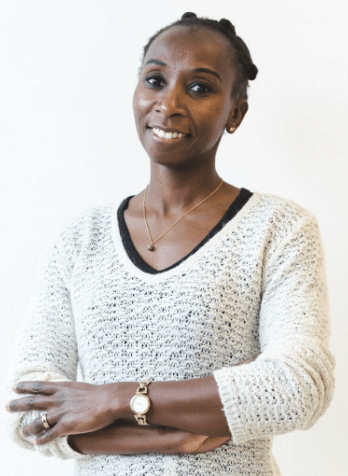In recent years, the revolutionary gene-editing technology CRISPR-Cas9 has captured the imagination of scientists worldwide, offering unprecedented capabilities to modify DNA with high precision. While the field has garnered significant attention, it is crucial to recognise and celebrate the contributions of women scientists who have been driving advancements in CRISPR research.

1. Dr. Soukaina El Mesbahi
Dr Soukaina El Mesbahi is a molecular biologist and bioinformatics expert based in Morocco. Her research primarily focuses on adapting CRISPR-Cas9 technology for applications in agriculture and healthcare relevant to the African continent. She is particularly interested in developing disease-resistant crops and improving diagnostic techniques for genetic disorders prevalent in African populations. Dr El Mesbahi’s work not only contributes to advancing CRISPR applications but also addresses critical challenges faced by African communities.

2. Dr. Jennifer Doudna
While not African by birth, Dr Jennifer Doudna’s influence in the field of CRISPR extends to the African continent. As a co-developer of the CRISPR-Cas9 gene-editing technology, Doudna’s ground-breaking work has paved the way for numerous applications across the globe, including Africa. Her advocacy for responsible and ethical use of CRISPR technology resonates with the broader scientific community, emphasising the importance of considering cultural, ethical and societal implications of genome editing in Africa and beyond.

3. Dr Narda Quigley
Dr Narda Quigley, a geneticist based in South Africa, has been at the forefront of CRISPR research on the continent. Her work encompasses both fundamental research and applied projects, such as using CRISPR-Cas9 to develop disease-resistant livestock that can withstand local environmental challenges. Dr Quigley’s multidisciplinary approach demonstrates the potential of CRISPR technology to address food security and economic development issues in Africa.

4. Dr Alice Matimba
Dr Alice Matimba is a molecular biologist from Zimbabwe who has contributed significantly to the advancement of CRISPR technology. Her work focuses on improving crop productivity and nutritional value through genome editing. By targeting specific genes in staple crops, Dr Matimba aims to enhance their resilience to climate change and their nutritional content, thereby addressing key agricultural challenges faced by African countries.

5. Dr Aminata Touré
Dr Aminata Touré is a Senegalese virologist and molecular biologist who has made notable strides in applying CRISPR technology to combat infectious diseases. Her research aims to develop targeted therapies for diseases disproportionately affectingt African populations such as malaria and HIV. By harnessing the precision of CRISPR-Cas9, Dr Touré’s work offers the potential to revolutionise treatment options and improve public health outcomes in Africa.
The CRISPR revolution has the potential to reshape various sectors, from agriculture to healthcare, offering solutions to long-standing challenges faced by African communities. The contributions of African female scientists in this field are not only advancing scientific knowledge, but also addressing critical needs on the continent. As we celebrate these remarkable women and their accomplishments, it is essential to recognise that their work stands as an inspiration to future generations of African scientists, highlighting the transformative power of diversity and innovation in shaping the future of CRISPR research.







